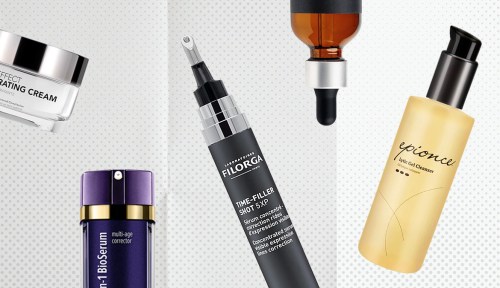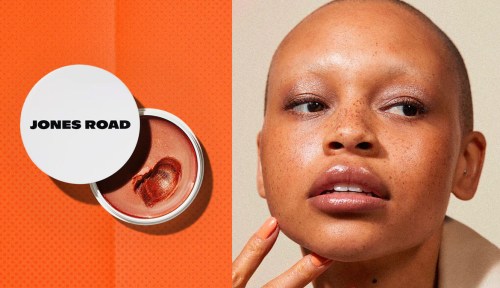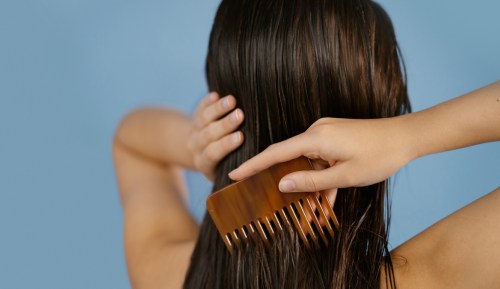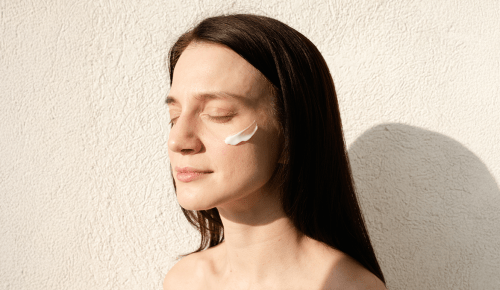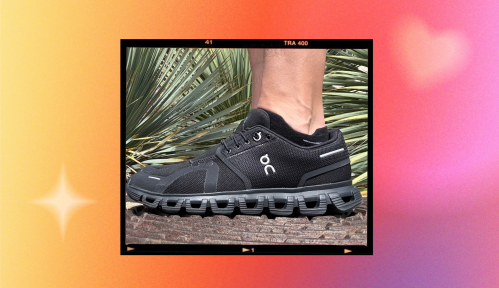Our editors independently select these products. Making a purchase through our links may earn Well+Good a commission
The only thing worse than sweating for hours on a hot, sticky day is realizing the steamy conditions ended up giving you a heat rash. You may notice it right when you get inside, or hours later when you get itchy skin after showering. For fast cooling relief, you might turn to a heat rash cream.
Experts in This Article
is a board-certified dermatologist at Hudson Dermatology and Laser Surgery in New York City.
board-certified dermatologist and founder of AziMD Skincare
board-certified dermatologist in New York City
double board-certified dermatologist and dermatopathologist at Medical Dermatology &
double-board certified allergist and immunologist at the Cleveland Clinic
Heat rash is a red rash marked by small, blister- or pimple-like bumps and itching. In some cases, it can also cause mild swelling or burning. (There’s a difference between heat rash vs. sun poisoning, BTW.) It happens when sweat gets trapped in your skin from excess heat, humidity, or clothing. The problem often strikes around skin folds or where your skin is pressing up against clothing for a long time—think your arms or legs, neck, back, groin, underarms, inner thighs, under your breasts (aka, boob sweat rash), or around your waistband, according to the Cleveland Clinic.
Heat rashes are generally harmless and will clear up on their own within a couple days. But because they can be uncomfortable, you may need something like a soothing rash lotion to tamp down itching while your skin heals. Here are our top picks—all dermatologist-approved.
How we chose
We tapped some top dermatologists to get their recommendations for the heat rash creams they suggest to patients. We also considered key factors that just, y’know, make a skin product really good, including:
- Ingredients
- Cost
- Effectiveness
- Ease of use
The 9 best heat rash creams
Ready for freedom from your annoying heat rash? Pick up one of these bottles or tubes and you’ll be feeling cool and comfortable in no time.
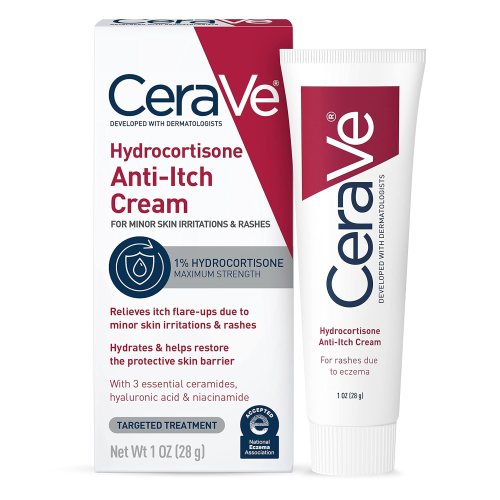
Best overall: CeraVe 1% Hydrocortisone Anti-Itch Cream — $9.79
All of our derms recommended a steroid cream with hydrocortisone for fast, effective relief. “It reduces inflammation, which makes it a helpful treatment for itchy, irritated skin,” says Brendan Camp, MD, a board-certified dermatologist in New York City. CeraVe’s cream in particular also delivers ceramides to fortify your skin barrier, so it stays healthier down the road. Bottom line: It’s an overall great anti-itch cream and product to protect your skin.
Key ingredients: Hydrocortisone, ceramides
Product size: 1 oz.
Keep in mind: You shouldn’t apply steroid creams more than three or four times per day, or for longer than seven days. (If you still need it by then, call your dermatologist.)
Pros:
- Small tube is easy to use on the go
- Works for sensitive or eczema-prone skin
- Great for bug bites
- Fast and effective
Cons:
- Not meant for long-term use
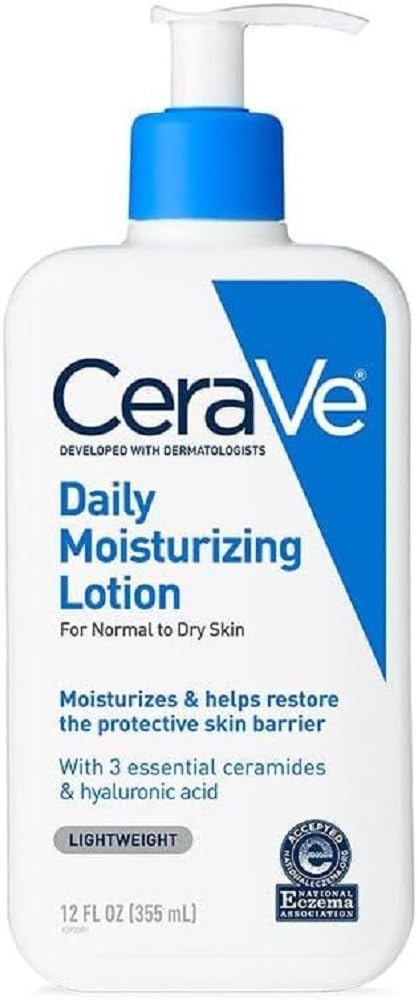
Best for sensitive skin: CeraVe Daily Moisturizing Lotion — $13.60
Though not specifically a prickly heat treatment (aka, heat rash), this lightweight, oil-free moisturizer does a great job of calming irritation, says Aya Ahram, DO, a dermatologist at Hudson Dermatology and Laser Surgery in Hudson, New York. Plus it’s free of fragrances that can irritate sensitive skin, making it a great gentle rash remedy.
Key ingredients: Hyaluronic acid, ceramides
Product size: 12 oz.
Keep in mind: While this product could help soothe mild heat rash, it does not contain any anti-itch ingredients like hydrocortisone. It’s often best used as a daily moisturizing lotion that can also be applied as needed.
Pros:
- Can be used as an everyday moisturizer
- Non-greasy
- Lightweight
Cons:
- Might not be soothing enough for severe heat rash
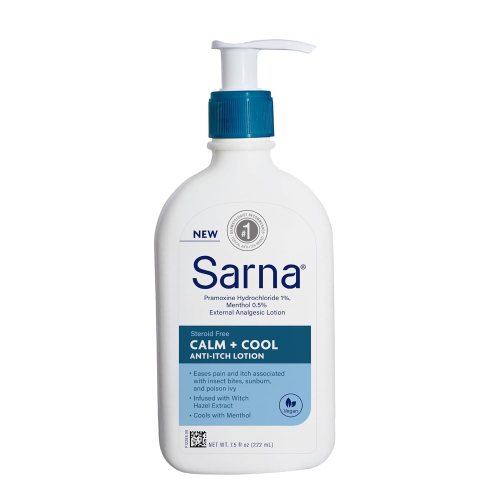
Best on a budget: Sarna Calm + Cool Anti Itch Lotion — $10.42
Sarna has pramoxine hydrochloride—a temporary numbing agent that’ll instantly nix your urge to scratch—plus cooling agents like camphor and menthol. Martin Smith, MD, a double-board certified allergist and immunologist at the Cleveland Clinic, also likes it because it’s steroid-free and inexpensive. It’s a great sweat rash ointment to slather on after a shower or once you’ve washed off from a long day at the beach (even if your skin irritation was partially a rash from sunscreen, too).
Key ingredients: Pramoxine hydrochloride, camphor, and menthol
Product size: 7.5 oz.
Keep in mind: It’s scented, so you may want to steer clear if you have sensitive skin.
Pros:
- Added cooling ingredients
- Steroid-free
- Intense itch relief
Cons:
- Not for eczema- or psoriasis-prone skin
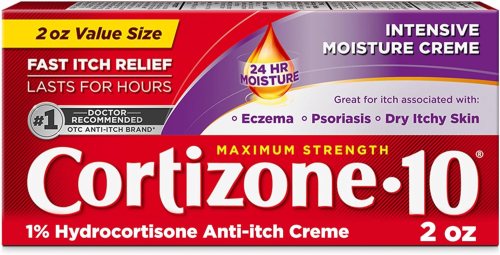
Best steroid cream: Cortizone 10 Maximum Strength Intensive Moisture Anti-Itch Cream — $7.98
When your urge to scratch is at its max, it might be helpful to reach for a hydrating cortisone cream. “This will do the job if you have severe itching, and the nice thing is that the strength of the steroid is low enough so that you can use it all over,” Dr. Smith says. So if you’re wondering how to get rid of heat rash quickly, this may be your best bet.
Key ingredients: Hydrocortisone
Product size: 2 oz.
Keep in mind: As mentioned before, try not to apply steroid creams more than three or four times per day, or for longer than seven days. Unless approved by your doctor, long-term steroid use is not always safest option for your skin. If you still need it after a week, give your dermatologist a call.
Pros:
- Small tube is convenient
- Works for eczema- and psoriasis-prone skin
- Also great for bug bites
- Fast and effective
Cons:
- Not meant for long-term use

Best aloe vera: Sun Bum Cool Down Aloe Vera Lotion — $10.79
Sun Bum’s sunscreen was a star with Well+Good’s SPF Awards, but the brand’s after sun products are also a hit in our book. This aloe vera-infused cream can help cool down sunburnt skin, but also itchy, red heat rash. It also has soothing ingredients like jojoba seed oil, rich cocoa butter, and vitamin E, which can help nourish, moisturize, and heal mild heat damage to skin. (Of course, let your doctor know if your side effects are severe, though.) Plus, it just smells really good.
Key ingredients: Aloe vera, jojoba seed oil, cocoa butter
Product size: 8 oz.
Keep in mind: This cream (and most of Sun Bum’s products) is vegan and made with natural ingredients. But it does have a bit of a scent, which may be irritating for those with sensitive skin.
Pros:
- Lightweight and non-greasy
- Vegan
- Cooling and fast-absorbing
Cons:
- Lightly scented, which may not be best for sensitive skin
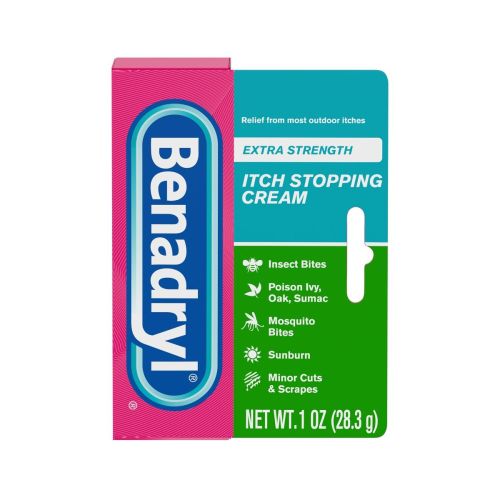
Best antihistamine: Extra Strength Benadryl Itch-Stopping Cream — $6.88
If your heat rash came with a side of sunburn, poison ivy, or bug bites, reach for this. This cooling cream has diphenhydramine (an antihistamine itch stopper), plus zinc acetate to keep your skin protected. And if your child’s pediatrician gives the “okay,” it may also be a good heat rash cream for babies and young kids, especially if they deal with other skin conditions like hives or rashes from allergies.
Key ingredients: Diphenhydramine, zinc acetate
Product size: 1 oz.
Keep in mind: Antihistamine creams can irritate sensitive skin, Dr. Smith says. Always ask your doctor or pediatrician before applying.
Pros:
- Small tube is convenient
- Works for itch caused by other things (bug bites, poison ivy, etc)
Cons:
- Not for sensitive skin
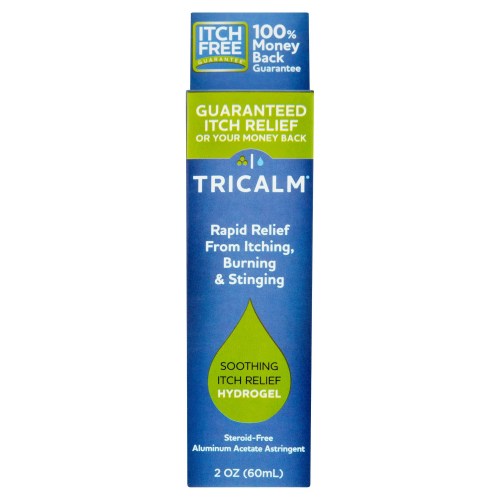
Best anti-itch: TriCalm Soothing Itch Relief Hydrogel — $10.63
Here’s another steroid-free option that relies on aluminum acetate to calm itching and redness. “The soothing gel formula works by constricting blood vessels locally,” which reduces inflammation, Dr. Smith explains. And because it doesn’t have steroids, it can be used more often as a skin calming cream, or even rash prevention cream—if you feel an itch coming on.
Key ingredients: Aluminum acetate
Product size: 2 oz.
Keep in mind: This product can make your skin feel more dry, especially if you use it often. Meaning, it may not be the best pick if you already have very dry skin.
Pros:
- Easy to use on the go
- Steroid-free
- Fast-absorbing
Cons:
- Not ideal for dry skin
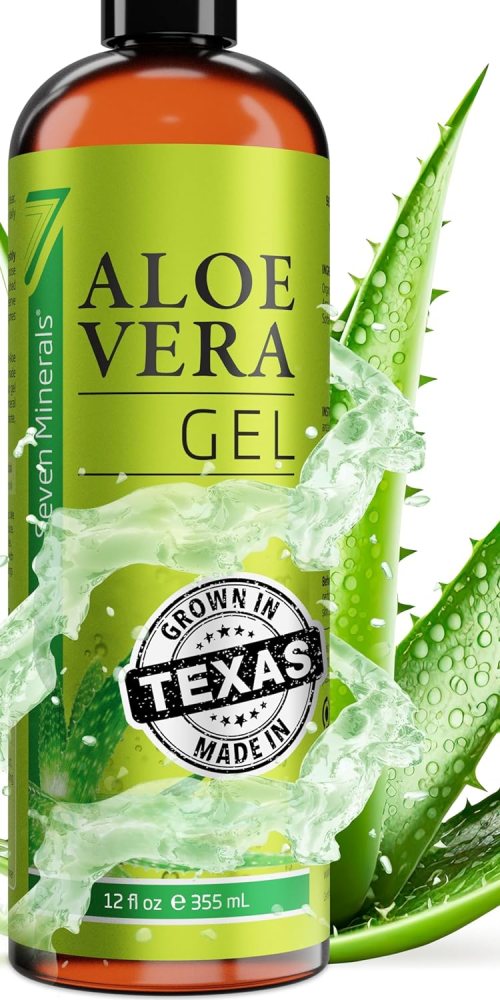
Best cooling: Seven Minerals Aloe Vera Gel — $19.95
You can’t go wrong with pure, simple aloe vera gel when your symptoms are more burn than itch, our derms advised. Dr. Camp likes this one in particular because it’s made from organic, cold-pressed aloe vera gel (grown in USDA-certified fields in Texas), so you don’t have to stress about any additives irritating your skin.
Key ingredients: Aloe vera
Product size: 12 oz.
Keep in mind: You’ll get even more relief by storing it in the fridge, so it’s nice and cool when you apply it, Dr. Shirazi says.
Pros:
- Also works for sunburns, bug bites, and razor burn
- Organic
Cons:
- Can feel sticky or tacky
- Not as good for itching
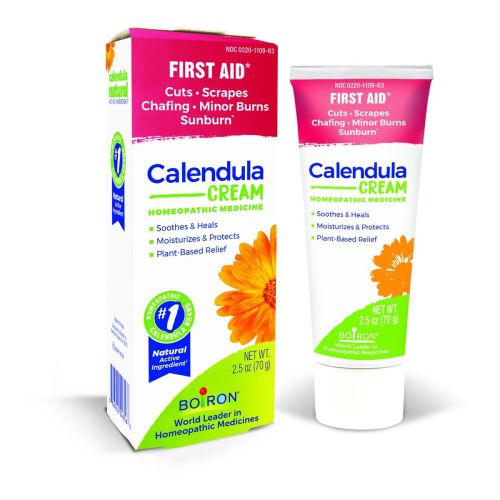
Best all-natural: Boiron Calendula Cream — $13.59
This is the only cream on our list that’s got calming, sweet-smelling calendula. “A plant-based ingredient, it helps reduce skin sensitivity and soothe irritation. It also possesses antioxidant and hydrating properties,” says Dr. Camp. Plus: If you’re searching for the best soap for heat rash, finding a natural or handmade bar with calendula is a great pick.
Key ingredients: Calendula officinalis
Product size: 2.5 oz.
Keep in mind: While calendula cream is an oft-used homeopathic remedy, claims of its effectiveness haven’t been evaluated by the FDA. Talk to your doctor before trying it out, and do a small patch test on your skin prior to applying it all over, to make sure you don’t have a negative reaction.
Pros:
- Lightweight
- Free of dyes and parabens
Cons:
- May not soothe itch as effectively as other OTC options
What to look for in a heat rash cream
The key is finding a cream with ingredients that’ll soothe your itchy, irritating skin without potentially causing more irritation. These tips can help:
- Pick a lightweight cream. Heat-rash affected skin needs to breathe, so steer clear of thick ointments. They can trap moisture and potentially make your symptoms worse, says New York City board-certified dermatologist Blair Murphy-Rose, MD.
- Look for anti-inflammatory ingredients. Some of the most effective heat rash soothers include zinc oxide, hydrocortisone, and aloe vera, says Azadeh Shirazi, MD, FAAD, a board-certified dermatologist and founder of AziMD Skincare.
- Look for cooling ingredients. Swiping on a cream with menthol or camphor can stop burning fast, adds Dr. Shirazi.
- Avoid additives. Fragrances or dyes are the biggest offenders, “since heat rash is more likely to react to these skin sensitizers,” Dr. Shirazi says.
Other natural remedies for heat rash
It’s also important to know you don’t need to buy a special cream for heat rash. According to our derms, these at-home strategies will also do a solid job of soothing your inflamed skin.
- Get out of your sweaty garbs. Leaving on wet clothes traps sweat against your skin, which only makes the heat rash worse, Dr. Ahram says.
- Keep it cool. “You can do cold compresses using chilled cucumbers or a bag of frozen peas. Applying chilled aloe vera gel is helpful, as is cold chamomile tea bags, as they both have calming, anti-inflammatory properties,” says Dr. Shirazi. A cool shower works, too.
- Keep it dry. Gently pat your skin dry with a towel after you’ve applied your cold compress or taken a shower. You can also do a dusting of cornstarch powder to sop up excess moisture and prevent friction that can make heat rash worse, Dr. Shirazi says.
- Wear loose, breathable clothes. They’ll help prevent friction and sweating—two things that heat rash does not like, Dr. Ahram says. While this won’t necessarily prevent heat rash, it could help you feel a bit better after the fact.
FAQ
How long does it take for heat rash to go away?
Not long! You should start to feel major relief as soon as you get your skin cool and dry, and the rash should go away completely within two to three days, says the Cleveland Clinic. (But if it doesn’t, let your dermatologist know.)
How can you tell the difference between a heat rash and an allergic reaction?
Hives are an allergic reaction marked by small, red, raised bumps. Like heat rash, they can be intensely itchy, cause itching or burning, and be triggered by intense heat exposure. But hives can change shape or move around to different areas of your skin, while a heat rash tends to stay in one spot. The center of a hive will also turn white when you press on it with your finger, per the American College of Allergy, Asthma, & Immunology.
What can be mistaken for a heat rash?
It’s not unusual to confuse hives for a heat rash, because both cause small, red, raised bumps that can be itchy and uncomfortable. If you keep getting a rash and are unsure of its cause, get in to see your dermatologist.
—reviewed by Jennifer Gilbert, MD, MPH
Sign up for the Well+Good SHOP Newsletter
Get exclusive deals on wellness, beauty, fitness, and food products that have been hand-picked by our editors.
Got it, you've been added to our email list.

